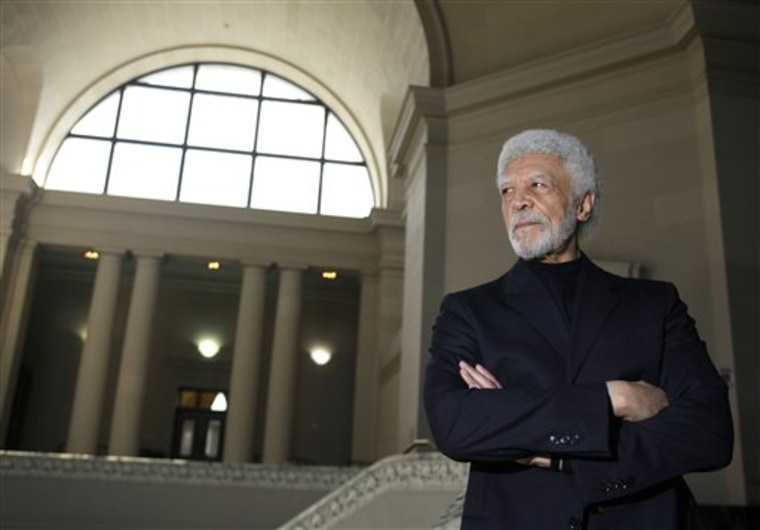With a redeveloped downtown, a busy port and renovated architectural treasures, this city has worked hard to shake its image as a struggling sister of San Francisco across the bay.
But lately the troubled side of Oakland has attracted all the attention: The city's top administrator was fired. The police chief resigned after taking heat for a number of alleged missteps. And a transit officer's shooting of an unarmed man sparked protests that degenerated into a nationally televised window-smashing spree.
"Oakland is a great city that is stumbling," said Terry Jones, a sociology professor at California State University, East Bay.
Some of Oakland's woes, such as steep unemployment, are long-standing issues that have grown worse because of the recession. Other troubles are not directly under City Hall's control, including the shooting, which involved a separate transit agency.
Problems in the police force
Problems in the police force are at the core of many of the woes, which include questions about the handling of a journalist's killing.
California Attorney General Jerry Brown — Oakland's previous mayor — is probing the police investigation into the death of Oakland Post Editor Chauncey Bailey, who was shot in 2007 while walking to work.
Ron Dellums, the charismatic 1960s activist who served 13 terms in Congress before becoming mayor two years ago, sought the outside review after news reports suggested the lead detective on the case ignored important evidence, which the department has denied.
Meanwhile, a dozen officers face disciplinary action for allegedly lying to obtain search warrants in drug cases. And a commander is on paid leave in connection with his handling of an alleged police beating in 2000, which led to a $10 million lawsuit.
Then on New Year's Day, a white Bay Area Rapid Transit police officer shot and killed an unarmed black man in front of horrified passengers at a rail station. Cell phone video of the shooting circulated widely on the Internet and led to huge street protests.
Weeks later, Police Chief Wayne Tucker resigned shortly before several city council members were to give him a public vote of no confidence.
"Somehow we don't have the ability to manage our police department," Councilman Ignacio De La Fuente said.
Police asked to review shooting
Dellums called on police to review the shooting, although the transit agency involved is not under city control. The mayor said he understood the outrage and supported the demand for justice.
But violence is not the answer, Dellums said. "What made me cry, my friend, was because I sensed the same anguish ... nearly 50 years ago."
In an Associated Press interview last week, Dellums took pride in the city's successes, especially a recent dip in crime and his decision to fully staff the police department. But he also acknowledged Oakland's challenges.
In other problems, the city struggles with an unemployment rate that reached 14 percent in January. Because of the recession, Oakland is also looking at a projected budget deficit of nearly $114 million over the next two years.
Some want more decisive action
Some people want to see Dellums take more decisive action. A recent outside report commissioned by the mayor's office found that residents are proud of him, but many feel he needs to be more visible.
"This city needs some clear leadership, and it starts up top with the mayor," said Dom Arotzarena, president of the Oakland Police Officers Association.
Defending his work ethic, Dellums said he is seeking a balance between behind-the-scenes work and communicating with residents.
"Just running around being visible doesn't solve people's problems," he said. "It may make you feel good, but it doesn't solve the problems."
Shake-up at City Hall
Dellums also engineered a shake-up at City Hall, replacing some department heads.
"I feel like this is Mr. Dellums' second half," said Henry Hitz, coordinator of the community group Oakland Parents Together. "I think he's been doing things behind the scenes to get things aligned in a way that most people don't even recognize."
Oakland's big hope is that Dellum's long track record and contacts in Washington will help the city attract federal stimulus money.
The city has proposed about $3 billion in new projects, including creating thousands of green jobs, establishing community policing programs and improving streets.
Dellums believes he can make the case that Oakland is a good place to spend federal dollars on urban problems such as energy conservation.
"We need to seize the moment," he said.
The police chief was not the only top city official to leave.
Oakland at a crossroads
Last summer, Dellums fired City Administrator Deborah Edgerly amid allegations she interfered with a police investigation involving her nephew, an alleged gang member. She has denied wrongdoing.
Greg Hodge, a former school board member and member of the city's Workforce Investment Board, sees Oakland at a crossroads.
"Oakland mirrors what is happening nationally, where on one hand, we are at a moment of extreme hope and optimism," he said. "And on the other, we have great anxiety and virtual panic.
"It can go either way."
